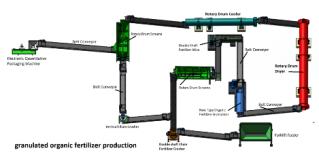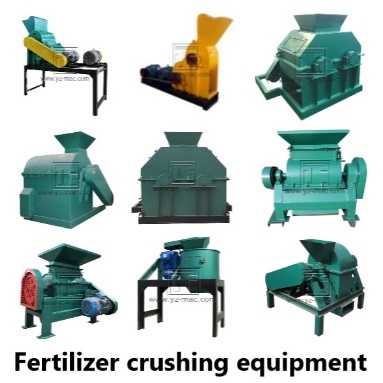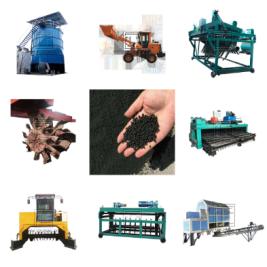Organic fertilizer granules making machine
An organic fertilizer granules making machine is a specialized equipment designed to convert organic materials into granular form, making them easier to handle, store, and apply as fertilizers. This machine plays a crucial role in the organic fertilizer production process by transforming raw organic materials into uniform granules with desired nutrient content.
Benefits of an Organic Fertilizer Granules Making Machine:
Improved Nutrient Availability: By converting organic materials into granules, the fertilizer granules making machine enhances the nutrient availability of organic fertilizers. The granules release nutrients gradually, ensuring a consistent supply of essential elements for plant growth and minimizing nutrient loss through leaching or volatilization.
Enhanced Fertilizer Quality: The granules making machine produces uniform and consistent fertilizer granules, which ensures a balanced nutrient distribution within each granule. This results in a high-quality fertilizer product with consistent nutrient content, improving its effectiveness and performance in supporting plant growth and crop yield.
Customizable Granule Size: Organic fertilizer granules can be produced in various sizes using the granules making machine, allowing for flexibility in meeting specific crop and soil requirements. The ability to customize granule size enables targeted nutrient delivery, optimizing fertilizer utilization and minimizing waste.
Ease of Handling and Application: Organic fertilizer granules are easier to handle and apply compared to bulk organic materials. The granular form allows for convenient storage, transportation, and application using traditional fertilizer spreading equipment, ensuring efficient and uniform nutrient distribution across the field.
Working Principle of an Organic Fertilizer Granules Making Machine:
The organic fertilizer granules making machine generally operates based on the following principles:
Mixing and Crushing: Raw organic materials, such as animal manure, crop residues, or compost, are first mixed and crushed to achieve a homogeneous mixture with consistent moisture content.
Granulation Process: The homogeneous mixture is then fed into the granulation chamber of the machine. Through a combination of mechanical force and the addition of binding agents, the mixture is formed into granules of the desired size and shape.
Drying and Cooling: The freshly formed fertilizer granules are subjected to a drying process to remove excess moisture, ensuring the granules’ stability and preventing caking. Subsequently, the granules are cooled to ambient temperature to enhance their hardness and durability.
Screening and Packaging: The final step involves screening the granules to remove any oversized or undersized particles, ensuring uniform granule size distribution. The screened granules are then ready for packaging in suitable containers or bags for storage or distribution.
Applications of Organic Fertilizer Granules Making Machine:
Agricultural Crop Production: Organic fertilizer granules produced using the machine are widely used in agricultural crop production. The granules provide essential nutrients for plant growth, improve soil fertility, and promote sustainable farming practices.
Horticulture and Floriculture: The granular organic fertilizers find applications in horticulture and floriculture for the cultivation of fruits, vegetables, flowers, and ornamental plants. The controlled-release nature of the granules ensures a steady supply of nutrients over an extended period, supporting optimal plant growth and development.
Organic Farming Systems: Organic fertilizer granules align with the principles of organic farming systems by offering a natural and sustainable source of plant nutrients. The granules contribute to soil health, microbial activity, and long-term sustainability, reducing reliance on synthetic fertilizers and promoting ecological balance.
Environmental Land Management: Organic fertilizer granules are used in environmental land management practices, such as land reclamation, soil restoration, and erosion control projects. The slow-release characteristics of the granules provide gradual nutrient release, facilitating soil rehabilitation and vegetation establishment.
An organic fertilizer granules making machine is a valuable asset in organic fertilizer production, offering numerous benefits such as improved nutrient availability, enhanced fertilizer quality, customizable granule size, and ease of handling and application. By transforming raw organic materials into uniform granules, this machine facilitates efficient nutrient delivery to plants, promoting sustainable agriculture and environmental land management practices.








